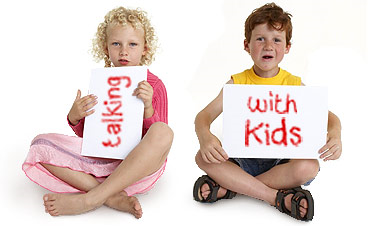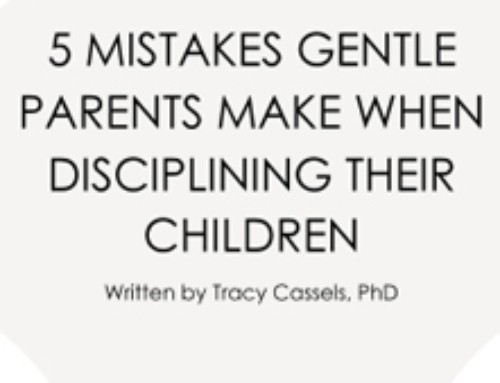By Tracy G. Cassels
 Recently Our Muddy Boots posted a piece which, in my opinion, was quite good and was looking at how we as parents can do things that bully our children. And thus, when we talk about ending bullying, the first place we may want to look is at ourselves. For example, she included the following:
Recently Our Muddy Boots posted a piece which, in my opinion, was quite good and was looking at how we as parents can do things that bully our children. And thus, when we talk about ending bullying, the first place we may want to look is at ourselves. For example, she included the following:
“We dismiss their hatred of school as “normal” and force them out of bed and out the door five mornings each week”
and
“We manipulate and trick our children by saying things like “do you want broccoli or carrots?” when we know what they really want is potatoes or cereal. We pretend that we are giving them a say, when really we are manipulating them into doing what we want”
OMB is very clear these are actions that she sees as bullying our children though we may not realize it as we do it. The point of the piece is to think of where bullying comes from. If it’s in the home, we have to start there if we hope to eliminate it. What got left out of the post, though, was what we should do instead of these behaviours which left room for people to start considering things like systems in place, privilege, and what is a parent’s role in all this.
It is possible to interpret the above examples (probably the most contentious of those used) as saying that we should just remove our kids from school (example 1 above) or let them eat whatever they want (example 2 above). I will say that I don’t think OMB would advocate that for everyone, though perhaps if it worked for some, she might (and perhaps I’m totally wrong and she is advocated that’s what we all do). But I will tell you that *I* certainly don’t see those as the only alternatives to not bullying your child.
For me, the most important part in this is communication. But before we get there, let’s discuss the issues that led me to conclude that communication matters so much. In the above examples, there are myriad reasons why a family may have to keep their child in a public school or only offer them two food options, neither of which is what they want. Heck, when it comes to food, sometimes there’s only one option and it’s not to be mean to the child but it could be because whoever is cooking isn’t a short-order cook or because that’s the only food in the house or because the choices the child wants aren’t good for them. For schooling, not everyone can afford to home-school or send their child to a private school. Yes, some families who are single-parent, one-income still make it work. But when you look at them, often what they have going is other, non-material support from family or friends which can allow them to handle the needs of daycare when they do have to work all while being home with their children enough to home-school. Not everyone has this though, and we certainly can’t go making recommendations without considering that what works for us may not work for everyone.
So if we can agree that there are many valid reasons why a family may not fall into the opposite of the examples given (i.e., removing them from school and letting them eat whatever they want), what about them? What can they do? And this is where I see communication coming into the picture. A family in which the parents not only listen to the child’s requests, concerns, fears, experiences, etc., but also acknowledges them as valid and is willing to share why they are behaving in a particular way – even if it’s not what the child wants to have happen – is not a bullying family.
Let’s take the school example first. Many families cannot home-school. Or simply have decided it’s not something that will work for the rest of the family. All valid reasons to keep a child in a public school. But first imagine you’re the child who tells your parents you hate school and you’re met with, “That’s normal. Get up and go. You’ll get over it.” How do you feel? Betrayed, that your feelings don’t matter, angry, and more. Exactly what OMB was talking about. But now imagine you share your feelings and your parents listen, they acknowledge them, they start to plan for a way to change things even if it means staying at the same school at the moment. They don’t treat it as though your negative emotions are “normal” and they allow you to feel heard. Are you out of school? Nope. But do you feel bullied by your parents? Nope. It may not be the “ideal” circumstance, but the lesson taught is one of empathy and problem solving, not power and dismissal. Now let’s look at the food example. You want, like many children, your favourite foods all the time. Your parents, on the other hand, have other ideas for many reasons. Now, if they listen to your requests and try to make it happen on occasion (the frequency of which will probably depend on what it is), but explain why it can’t happen all the time, do you feel bullied? Nope. Sad? Frustrated? Even angry? All possible. But at the end of the day, that’s not feeling bullied.
One of the things that can get lost in these discussions is that it’s okay not to blindly give your child whatever he or she asks for. It’s called boundaries. Unfortunately we seem to have taken the idea of boundaries to an extreme in our society in which we not only impose them for seemingly no reason, but also at times when it’s highly inappropriate. When children are infants, they are too young to understand any of this and only have needs and thus we “cater” to them (a term I hate because providing your young ones with their needs is hardly catering, it’s parenting). There are also physiological reasons not to impose certain boundaries on older children – like crying it out with toddlers, which still causes stress responses. And then there is the psychological effects or unintended lessons. For example, one of the examples in OMB’s post was about forcing hugs. I’ve written about this issue here and let me reiterate that at no time should be we forcing our children to engage in unwanted touch. I don’t care whose feelings get hurt – grandma, aunt June, a friend – it doesn’t matter. Our children need to understand that their body is their own.
I believe, however, that the communication rule can help us here as well. Think of it this way, if you try to sit down and explain to a child why you’re engaging in a practice, and you think about your answer from their perspective, will it sound reasonable? They don’t have to like it, but would it be fair?
How would you explain crying-it-out to an infant or toddler?
“I’m sorry, your sleep just isn’t working for me. So instead of trying to work with you to find a solution that doesn’t distress you, I’m just not going to respond to you at all anymore. Or perhaps I’ll come in and just make sure you’re alive every ten minutes and then repeat.”
Is that reasonable? How would you react if someone said that to you? Or what about forcing children to hug others?
“I know it makes you feel uncomfortable and I know you think your body is your own, but it isn’t. I’m going to tell you what to do with it. And because this person wants a hug, I want you to give it to them. What you want for your own body doesn’t matter. It’s just called ‘being polite’ and you need to learn how to do this to get along in the world.”
What lesson does that send? Is it one you want to send?
At the end of the day, we won’t be able to give our children all they want. And frankly, I’m not sure we should. We should, however, hopefully provide them with what they need and then be able to talk to them about the reasons why life isn’t always fair and doesn’t always come up roses. But if in that discussion you hear yourself talking about things that make you cringe, or sending messages you don’t want to send, or just hearing yourself sound like an ass, you may want to step back and rethink your position. Communication helps us in more ways than one. Not only does it allow others to understand our perspective, which is key, but sometimes it can open our own eyes to it as well.






[…] not use time out or time in; Bullying my kids), Evolutionary Parenting (e.g. What is discipline, Bullying, Parenting and Communication), PhD in Parenting (e.g. 3 R’s of toddler discipline: repetition, reaction, reassurance), Lori […]
[…] there is also a view that I am gradually becoming more familiar and comfortable with, about control in relation to […]